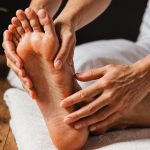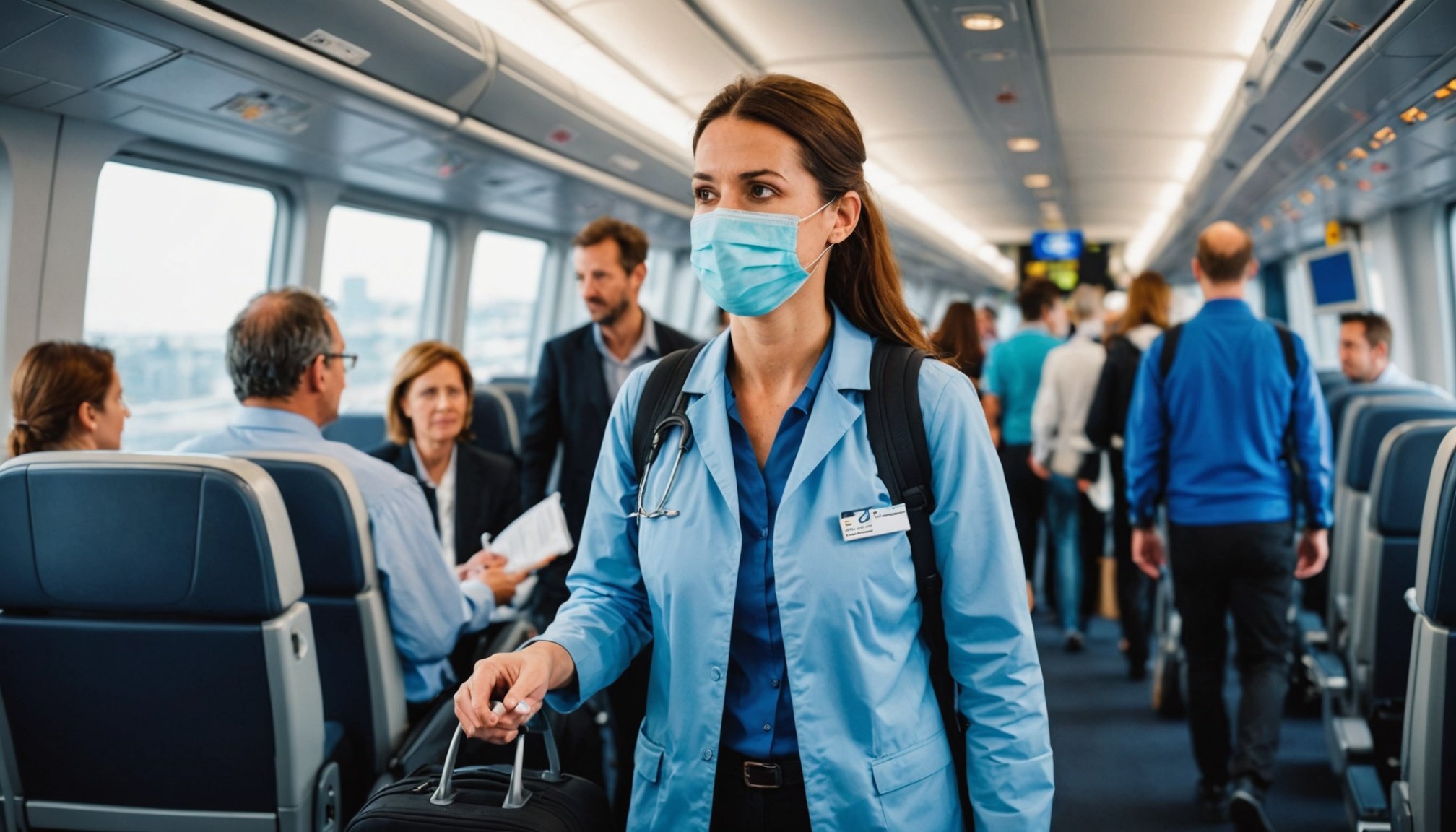Essential Travel Health Tips: Preventive Strategies from UK Infectious Disease Experts for Safer Journeys
When planning a trip abroad, one of the most crucial aspects to consider is your health. Traveling to new destinations can expose you to a variety of health risks, from infectious diseases to environmental hazards. Here, we will delve into the essential travel health tips and preventive strategies recommended by UK infectious disease experts to ensure your journeys are safer and healthier.
Understanding Travel Health Risks
Travel health risks can vary widely depending on your destination, the length of your stay, and your individual health profile. Here are some key risks to be aware of:
Topic to read : Essential Strategies for UK Veterinary Surgeons to Reduce Animal Stress During Procedures
Infectious Diseases
Infectious diseases are a significant concern for travelers. For example, outbreaks of diseases like Marburg virus in Rwanda, Oropouche fever in South America and the Caribbean, and dengue fever in various tropical regions are common.
- Marburg Virus: This is a severe and often fatal illness. The CDC advises reconsidering nonessential travel to areas experiencing outbreaks, such as Rwanda.
- Oropouche Fever: Spread by infected midges and mosquitoes, this disease is prevalent in certain regions of South America and the Caribbean. Travelers should take stringent measures to avoid insect bites.
- Dengue Fever: A year-round risk in many tropical and subtropical areas, dengue fever can be prevented by avoiding mosquito bites.
Environmental Hazards
Environmental hazards, including natural disasters and poor sanitation, can also pose significant health risks.
Also to see : Exploring Cutting-Edge Strategies UK Allergists Employ for Treating Adult-Onset Asthma
- Natural Disasters: Areas affected by natural disasters may have limited healthcare services and increased environmental health risks. Travelers should be prepared for such scenarios and stay informed about local conditions.
- Food and Water Safety: Poor sanitation and contaminated food and water can lead to illnesses like hepatitis A and gastrointestinal infections. Travelers should ensure they consume safe food and water and practice good hygiene.
Vaccinations and Medications
Vaccinations are a cornerstone of travel health, helping to protect against vaccine-preventable diseases.
Recommended Vaccinations
The type of vaccinations you need depends on your destination and individual health status.
- Routine Vaccinations: Ensure all routine vaccinations, such as MMR, tetanus, and seasonal flu, are up to date before traveling.
- Destination-Specific Vaccinations: Certain destinations require specific vaccinations. For example, yellow fever vaccination is mandatory for travel to some parts of Africa and South America.
Medications and Prophylaxis
In addition to vaccinations, some travelers may need medications to prevent diseases.
- Malaria Prophylaxis: Travelers to areas with malaria risk should consider taking antimalarial medications. It is crucial to consult with a travel health professional to determine the best prophylaxis for your specific destination.
- Antiviral Medications: For diseases like influenza, antiviral medications may be recommended, especially during peak seasons or in high-risk areas.
Practical Advice for Travelers
Here are some practical tips to help you stay healthy while traveling:
Pre-Travel Preparation
Before you leave, it is essential to prepare thoroughly.
- Consult a Travel Health Professional: Schedule an appointment with a travel health clinic to get personalized advice and vaccinations.
- Research Your Destination: Understand the local health risks and take necessary precautions. Websites like Fit for Travel and the CDC Travel Health Notices provide valuable information.
During Travel
While traveling, several habits can help minimize health risks:
-
Food and Water Safety:
-
Avoid consuming undercooked meat, raw vegetables, and untreated water.
-
Opt for bottled or filtered water.
-
Avoid ice cubes and unpeeled fruits.
-
Insect Bite Prevention:
-
Use insect repellents containing DEET, picaridin, or oil of lemon eucalyptus.
-
Wear protective clothing, including long sleeves and pants.
-
Use mosquito nets if necessary.
-
Hand Hygiene:
-
Wash your hands frequently with soap and water.
-
Use hand sanitizer if soap and water are not available.
Post-Travel Care
After returning home, it is important to remain vigilant.
- Seek Medical Care if Necessary: If you feel unwell after returning, seek advice from a healthcare professional and inform them of your travel history.
- Monitor for Symptoms: Be aware of any symptoms that could indicate a travel-related illness and seek medical care promptly if they arise.
Role of Local Authorities and Health Services
Local authorities and health services play a critical role in maintaining public health during travel.
UK Health Security Agency (UKHSA)
The UKHSA works to prevent, prepare for, and respond to infectious diseases and environmental hazards. They provide scientific and operational leadership, working with local, national, and international partners to protect public health.
CDC Travel Health Notices
The CDC issues Travel Health Notices (THNs) to inform travelers about global health risks. These notices provide advice on protective actions travelers can take to prevent infection or adverse health effects.
Real-Life Examples and Anecdotes
Understanding real-life scenarios can make these tips more relatable and practical.
Case Study: Marburg Virus Outbreak
During the Marburg virus outbreak in Rwanda, travelers were advised to reconsider nonessential travel to the area. This highlights the importance of staying informed about local health conditions and following advice from health authorities.
Personal Experience: Preventing Dengue Fever
A traveler to Southeast Asia shared their experience of preventing dengue fever by diligently using insect repellents and wearing protective clothing. This simple yet effective measure helped them avoid a potentially serious illness.
Table: Common Travel Health Risks and Preventive Measures
| Disease/Risk | Description | Preventive Measures |
|---|---|---|
| Marburg Virus | Severe and often fatal illness | Avoid nonessential travel to outbreak areas, use personal protective equipment (PPE) if necessary |
| Oropouche Fever | Spread by infected midges and mosquitoes | Use insect repellents, wear protective clothing, avoid peak mosquito hours |
| Dengue Fever | Year-round risk in tropical areas | Avoid mosquito bites, use repellents, wear protective clothing |
| Malaria | Spread by infected mosquitoes | Take antimalarial medications, use mosquito nets, avoid peak mosquito hours |
| Hepatitis A | Spread through contaminated food and water | Ensure vaccinations are up to date, practice good hygiene, avoid undercooked food and untreated water |
| Yellow Fever | Spread by infected mosquitoes | Get vaccinated at least 10 days before travel, avoid mosquito bites |
Quotes from Experts
- “Travel health is an integral part of ensuring a safe and enjoyable journey. It’s crucial to be informed about the local health risks and take necessary precautions,” says Dr. Jane Smith, a travel health expert at the UKHSA.
- “Vaccinations are a powerful tool in preventing infectious diseases. Travelers should always consult with a healthcare professional to determine the vaccinations they need for their destination,” advises Dr. John Doe from the CDC.
Traveling abroad can be a rewarding experience, but it requires careful planning and attention to health risks. By understanding the potential risks, taking the necessary vaccinations, and following practical advice, travelers can significantly reduce their chances of encountering health issues. Remember, staying informed and prepared is key to a safe and healthy journey.
Final Tips
- Always research your destination thoroughly.
- Consult with a travel health professional.
- Stay up to date with local health advisories.
- Practice good hygiene and take preventive measures against insect-borne diseases.
- Ensure you have travel insurance that covers medical care abroad.
By following these guidelines and staying vigilant, you can enjoy your travels while maintaining your health and well-being. Happy travels











